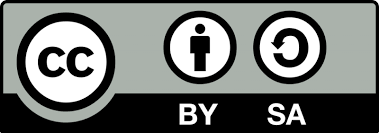Oposición libre vs libre designación al Cuerpo de Inspectores de Educación. De la Transición a la democracia.
DOI:
https://doi.org/10.23824/ase.v0i41.848Downloads
Abstract
We present the modalities of access to the Educational Inspectorate in the period considered with the objective of contributing to an Education Inspectorate that is more aware of its past and therefore more efficient, summarizing the current empirical basis and discussing questions of validity and reliability of the access processes in relation to the effectiveness of the research. Although, once again, yesterday's solutions are today's problems, the situations of patrimonialization of the public administration, and especially the use of public jobs for the benefit of the different political groups, were the general trend in the period before the Spanish Constitution of 1978. There have been two different periods, one in which the Inspectorate was abolished and yet numerous access processes to the Educational Inspectorate were carried out, and the current period, which is the logical consequence of social progress and the democratic concept, and which is characterized by access through competitive examination.
References
Castán Esteban, J.L. (2019). Fuentes bibliográficas y documentales para la investigación histórica sobre la Inspección de Educación. Educa Nova: colección de artículos técnicos de educación, 9, p. 59-84.
Castán Esteban, J.L. (2021). La investigación sobre la historia de la inspección de educación en España. Balance y perspectivas. Espacio, Tiempo y Educación, 8(1), pp. 219-245. DOI: http://dx.doi.org/10.14516/ete.338
Esteban Frades, S. (2010). Los últimos cuarenta años de historia de la Inspección Educativa en España. Avances en Supervisión Educativa, 12. Disponible en https://avances.adide.org/index.php/ase/article/view/442
Galicia Mangas, F.J. (2016). Origen y evolución histórica de la Inspección de Educación en España. En Galicia Mangas, F.J., La Inspección de Educación: régimen jurídico. Madrid, Secretaría General Técnica. Ministerio de Educación, Cultura y Deporte, pp. 25-120.
López del Castillo, M.T. (1995). El acceso a la Inspección profesional en el sistema educativo español.1849-1936. En Soler, E. (Coord.), Estudios históricos sobre la Inspección educativa (pp. 43-172). Escuela Española.
López del Castillo, M.T. (2000). La inspección del Bachillerato en España (1845-1984). Madrid, UNED, Cuadernos de la UNED.
López del Castillo, M.T. (2013) Historia de la inspección de primera enseñanza en España. Madrid, MECD.
Mayorga Manrique, Alfredo (2000) Inspección educativa: siglo y medio de la Inspección Educativa en España, 1849-1999. Madrid, Santillana, p. 244-260.
Montero Alcaide, A. (2021). Historia de la Inspección de Educación en España (I y II). Madrid, Ministerio de Educación y Formación Profesional y Ministerio de Ciencia, Innovación y Universidades
Ramírez Aísa E. (1999). La Inspección de Educación en España, 1970-1995. Bordón, 51(3), 285-298.
Ramírez Aísa E. (2006). Reflexiones en torno al origen e historia de la Inspección de educación. Avances en Supervisión Educativa, 2. Recuperado a partir de https://avances.adide.org/index.php/ase/article/view/190
Sánchez-Tarazaga, L., y Matarranz, M. (2023). El perfil competencial docente en la política educativa de la Unión Europea. Revista De Educación, 399, 131–157. https://doi.org/10.4438/1988-592X-RE-2023-399-564
Soler Fiérrez. E. (2019). Inspección: las lecciones de su historia. Fuentes para su investigación y estudio. Educa Nova: colección de artículos técnicos de educación, 9, 15-57.
Tébar, F. y Gregorio, A. (2023). Oposición libre versus libre designación al Cuerpo de Inspectores de Educación. Desde los “Veedores” hasta la Constitución de 1978. Revista Avances en Supervisión Educativa, número 40. DOI: https://doi.org/10.23824/ase.v0i40.804
Viñao Frago, A. (2004). Escuela para todos. Educación y modernidad en la España del S. XX. Madrid, Marcial Pons editores.
How to Cite
Issue
Section
Published
License
Copyright (c) 2024 Fernando Tébar Cuesta

This work is licensed under a Creative Commons Attribution-ShareAlike 4.0 International License.

Attribution Share-Alike CC BY-SA
Those authors who have publications with this magazine, accept the following terms:
A) The authors will retain their copyrights, which will be simultaneously subject to the Creative Commons Attribution License that allows others to re-mix, modify and develop on your work even for commercial purposes, provided they credit you And to license their new works under the same terms.
B) The authors will retain the rights of exploitation of the intellectual property of this work, and especially the rights of reproduction, distribution, transformation in any of its modalities and public communication of said work, which will be simultaneously subject to the License Of recognition of Creative Commons that allows others to re-mix, modify and develop on your work even for commercial purposes, provided they credit you and license your new works under the same terms.
Creative Commons Attribution-ShareAlike 4.0 International Public License

